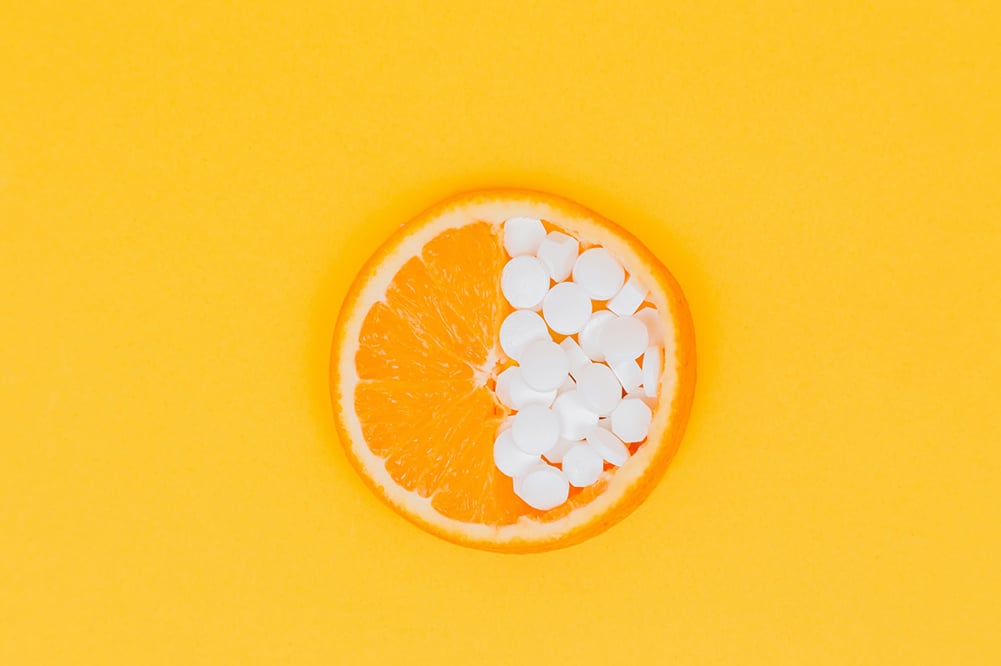
Reviewed and Updated: August 20th, 2025
Aging is inevitable. Millions of dollars are spent each year on supplements and serums that promise to "reduce the signs of aging." Are any of these products that promise to extend your quality of life effective at all? If so, can they be right for you? Let's take a look.
What is Aging and What Causes It?
Aging is the natural process of life that changes how our bodies look and work over time. But those changes can often be unpleasant in one way or another. Our bones get thinner, our skin loses elasticity, and many basic functions become more difficult.
Staying self-sufficient and thriving in today's fast-paced society has increased the stress to maintain our strength, mobility, and youthful appearance for longer.
How Do I Slow Down Skin Aging?
While you can't actually stop or slow down time, there are some things you can do to keep your skin looking young and healthy.
Antioxidants are found in many foods we eat, especially fruits and vegetables. They fight aging by trapping free radicals caused by sunlight and air pollution. A diet rich in antioxidants can protect your skin from environmental elements that cause wrinkles.
Also, be sure to use sunscreen when you're going to be outside for any length of time! Keeping yourself healthy by eating right and exercising regularly can also help keep your skin looking great.
When Should I Start Using Anti-Aging Products
Experts say that your skin starts to age when you reach your 20s. That is also the best time to start using anti-aging products to help support healthy skin.
Anti-Aging Supplements
When it comes to options for making sure your skin stays looking young and healthy, Vitamin C is vital.
Here are some of the most potent anti-aging components that supplement producers use in their products.
[Related: Natural Remedies for High Cholesterol]
Sea Cucumber
Sea Cucumber is a source of collagen for those looking keep their skin healthy and supple. Unlike traditional bovine or fish collagen, sea cucumber contains marine collagen that is highly absorbable, helping to restore skin elasticity and hydration. It’s also rich in glycosaminoglycans, compounds that lock in moisture and keep your skin supple.
Beyond collagen, sea cucumber is loaded with antioxidants, which help neutralize free radicals and reduce oxidative stress—the same culprits that accelerate fine lines and wrinkles. Plus, its unique bioactive compounds may even support skin repair and regeneration, making it a powerhouse for maintaining a youthful glow.
Best in Nature carries Ocean Pride Fisheries dried sea cucumbers which you can incorporate into soups and stir fries. Or we also have Beche Capsules for a more convenient way to enjoy the anti-aging benefits of sea cucumber. All of the sea cucumbers in our products are harvested from the pristine oceans off of Canada's eastern coast.
Curcumin
Curcumin is a supplement made from the compound that gives turmeric its yellow color. It has powerful antioxidant properties and is believed to play a role in reducing inflammation, a leading cause of aging. However, it has also been known to help delay some cellular senescence. It is recommended to consume 500 - 1,500 mg per day but keep in mind that curcumin can increase bleeding risk if you are taking blood-thinners, also increases the effects of diabetes medications and may interfere with iron levels.
Because curcumin is found all across the globe in various dishes, it's easy to add this compound to your regular diet.
CoQ10
CoQ10 is the common name for Coenzyme Q10, which is a natural antioxidant found in the body and foods we eat. CoQ10 can help to reduce wrinkles and supports smooth skin and works even better when combined with collagen.
The recommended use is 100 - 200 mg per day and it may interact with cholesterol medications (i.e.: statins) and chemotherapy agents.
Collagen
Collagen is found in the body in almost all of our body's tissues. Its most important function is to keep the skin smooth and supple. As we age, collagen levels tend to drop significantly, leading to wrinkles and a decrease in overall skin quality.
However, adding this powerful healing supplement to your skincare routine can help to keep your skin looking young and is commonly referred to as an anti-aging miracle.
The recommended dose is 2.5 - 15 grams of hydrolyzed collagen per day for skin and joint benefits.
Resveratrol
Resveratrol is a powerful antioxidant found in red wine, berries, peanuts, and grapes. The antioxidant slows down the effect of aging, improving your complexion and stimulating elastin, collagen, and hyaluronic acid production. This ultimately helps to protect against sun damage and decrease wrinkles.
Grape Seed Extracts is also a powerful anti-aging supplement that is derived from red grapes. Resveratrol's rich antioxidant content also means it's anti-inflammatory and has been linked to better heart health.
You can take 100 - 500 mg of resveratrol per day; note, increased risk of bleeding if you are taking anticoagulants such as warfarin.
[Related: Can a glass of Red Wine a Day Keep the Doctor Away?]
Vitamin C
Vitamin C is often used to help support a healthy immune system. However, it can also help keep your skin looking young by aiding in the synthesis of collagen. Vitamin C protects the body from free radical damage, which can cause your skin to age. This essential nutrient is full of antioxidant properties. You may consume 500 - 1,000 mg per day to achieve immunity and skin health benefits; also, vitamin C can enhance iron absorption.
Vitamin E
Vitamin E is an antioxidant that helps protect skin cells from damage. It is especially helpful in protecting the skin from sun exposure and preventing premature aging. Vitamin E has been used in lotions and skincare for many years and is continuing to help keep your skin looking young.
Vitamin E is an anti-inflammatory that has also been known to help heal wounds and soothe irritation caused by allergies, dry skin, and other skin problems. The recommendation is 22 international units (IU, 15 mg) to 400 IU per day. Keep in mind that doses over 400 IU may increase the risk of bleeding.
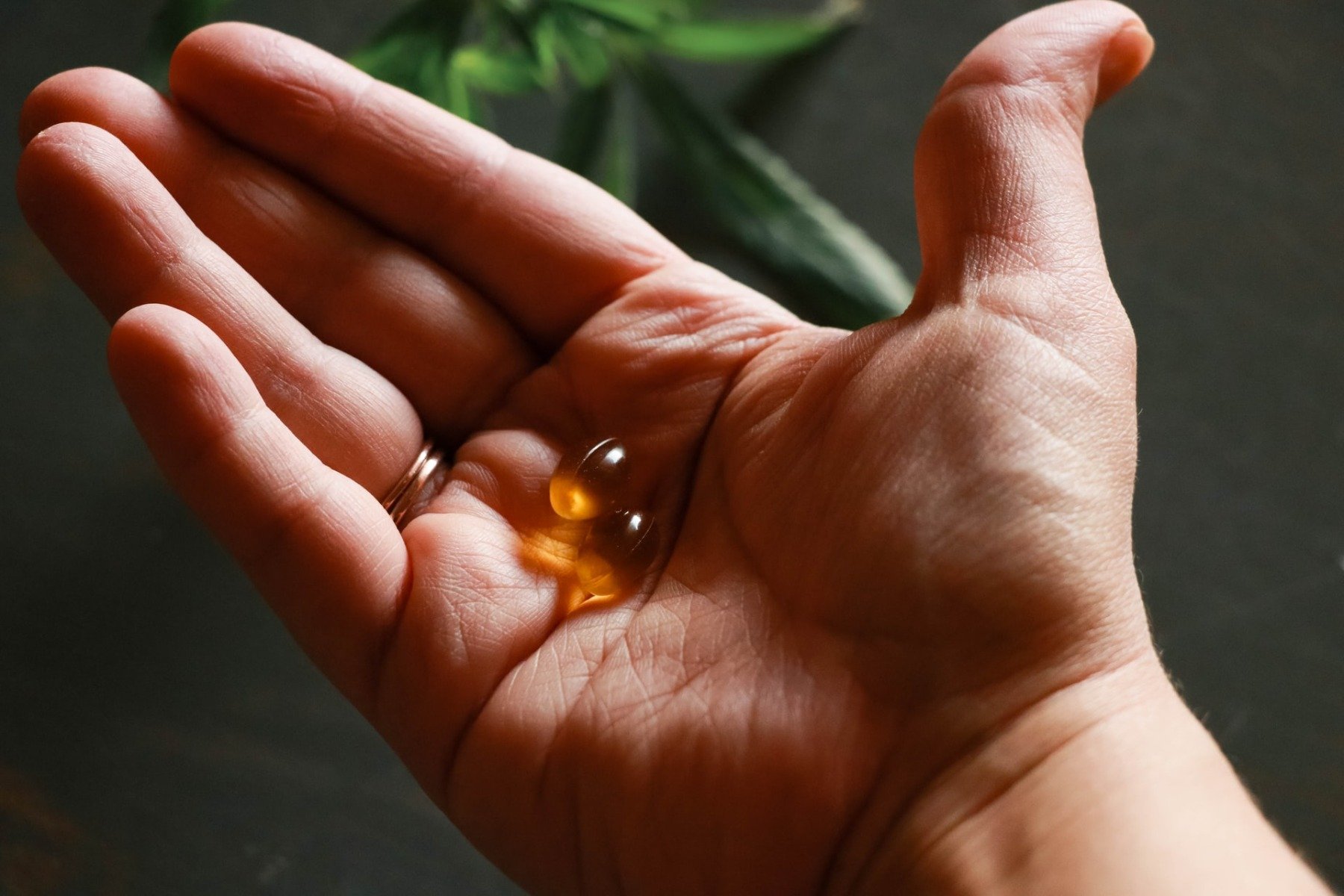
Selenium
Selenium is a unique compound because it can be found in dirt or other soil types but can be a key nutrient for keeping your skin looking young. Studies show that it may even protect against some forms of cancer. The recommendation is 55 to 200 micrograms (mcg) per day; note that higher doses can cause hair loss.
Vitamin A
Vitamin A is a key nutrient in vision, growth, cell division, immunity, and reproduction.
Its benefits to the skin include the ability to prevent acne, blemishes, wrinkles, and dryness. This vitamin helps to slow the degradation of collagen. The recommended doses are 700 mcg for females and 900 mcg for males; it is contraindicated in pregnancy at high doses, so please consult your doctor before use.
If you increase your Vitamin A intake, it is also possible that there could be adverse effects if you take more than your body needs, such as hair loss and yellowing of the eyes or skin.
Vitamin D
Vitamin D can do your body a world of good. Vitamin D helps to reduce the risk of heart disease, cancer, diabetes, and bone loss.
Some of Vitamin D's health benefits are mainly brought about because this vitamin works with calcium to help the body maintain healthy bones. However, it can also help keep your skin looking young.
Skin tends to sag when there is bone loss, so a boost of Vitamin D helps keep skin looking supple. You may consume 600 - 800 IU per day for bone health and immunity.
Vitamin K
Vitamin K is responsible for keeping the collagen within your skin flexible and thick. Frequently weak skin is easy to bruise or has highly visible veins so getting enough can help to prevent dark circles around the eyes and other such problems. Men may take 120 mcg per day whereas women may take 90 mcg per day.
Fortunately, many common vegetables like broccoli, kale, and cabbage are rich in this nutrient.
Fish Oil
Also sometimes referred to as Omega-3, fish oil is an excellent addition to the anti-aging supplements that you can take to help keep your skin looking young. There are two types of essential fatty acids found in fish oil. DHA and EPA.
EPA benefits your skin by reducing natural inflammatory compounds found in the body. Furthermore, it helps regulate your body's natural oil production leading to hydrated, blemish-free skin.
Better yet, fish oil can also help with cholesterol maintenance and even has some protective effect against heart attack and stroke.
The recommended dose is 1 - 2 grams per day. Higher doses may increase bleeding risk specially if you are on blood-thinners.
Epigallocatechin Gallate (EGCG)
EECG is a compound that is commonly found in green tea and offers some amazing health benefits. Epigallocatechin Gallate is a powerful antioxidant that helps prevent damage to skin cells. Additionally, it can reduce swelling and redness in the skin and help restore an even skin tone. One study has found that this compound may also help protect your eyes from eye fatigue and dryness when exposed to high altitudes.
The recommended dosage is often between 300 - 500 mg per day. Take into consideration that EGCG may interfere with certain heart medications, anticoagulants, and also may reduce iron absorption.
Finally, EGCG can help your body slow the signs of aging by restoring cell function and improving your immune function.
[Related: 15 Herbs that are Beneficial for your Immune System]
Nicotinamide Riboside and Nicotinamide Mononucleotide
Nicotinamide riboside and nicotinamide mononucleotide are both forms of vitamin B3 that are found naturally in the body and can help slow down the signs of aging. When taken as a supplement, these two compounds can help improve nicotinamide adenine dinucleotide (NAD) levels in your cells, which play an integral role in energy production. You may take 250 - 500 mg of NR or NMN per day.
Increased NAD levels may help prevent age-related genetic changes that can affect how your skin looks and feels.
Crocin
Crocin is a compound that is found in saffron. However, this supplement is much more affordable than spice. Studies have shown a lot of great benefits when it comes to using Crocin to reduce the effects of aging.
Crocin also contains antioxidants, which can help reduce fine lines and wrinkles. Crocin may be able to improve the texture of your skin.
Crocin also contains anti-inflammatory properties that can help soothe redness on your skin. This compound has been studied for its ability to help heal wounds too or help if you have acne or blemishes. And helps to reduce the harmful effects of UV light.
Typical dosing is 30 mg of saffron (equivalent to 1-2 mg of crocin) daily. Although more studies are needed, crocin may increase the effects of antidepressants, so make sure to consult with your physician.
Bottom Line
We all eventually experience the signs of aging. Over time, the strength of our bones and joints, the clarity of our brains, and the suppleness of our skin decrease. However certain supplements have been shown to provide some ability aid in these areas. If you're looking for a little help, check out our full line of supplements. We carry formulas for bone health, heart health, anti-aging and more.
* This article is for informational purposes only and doesn’t constitute medical advice. For immediate health concerns, please consult your physician.
These statements have not been evaluated by the Food and Drug Administration. Products are not intended to diagnose, treat, cure or prevent disease.
© 2025 Best in Nature All rights reserved





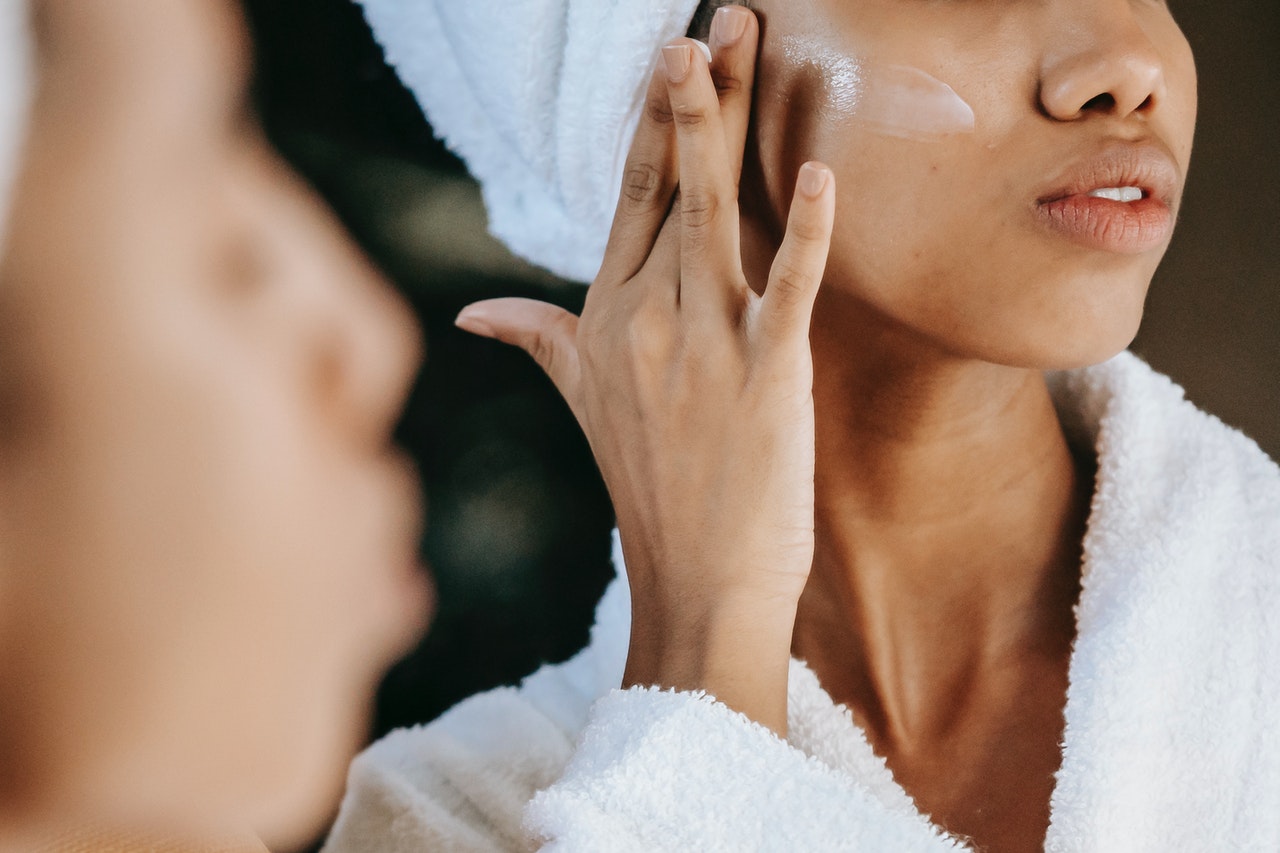

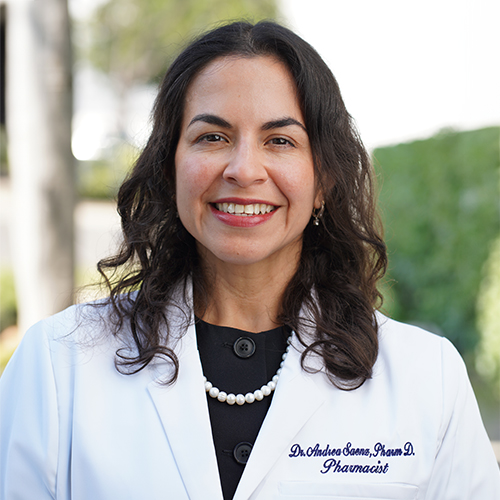
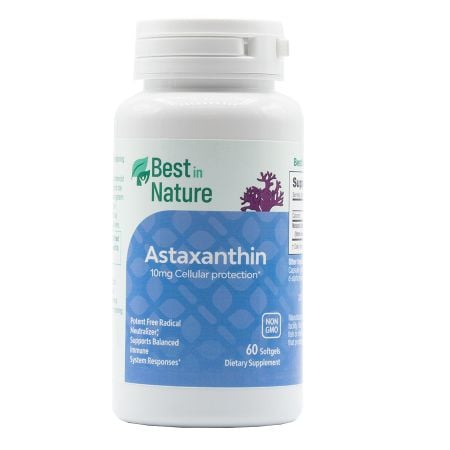
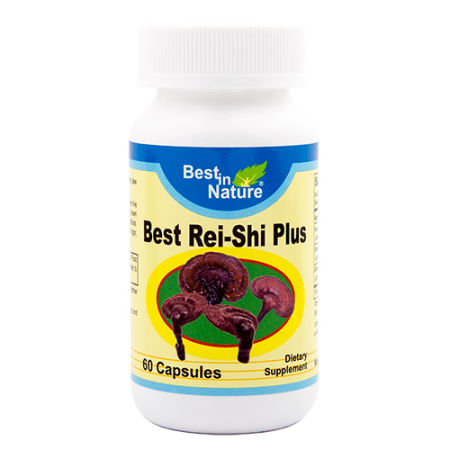

Validate your login
Sign In
Create New Account